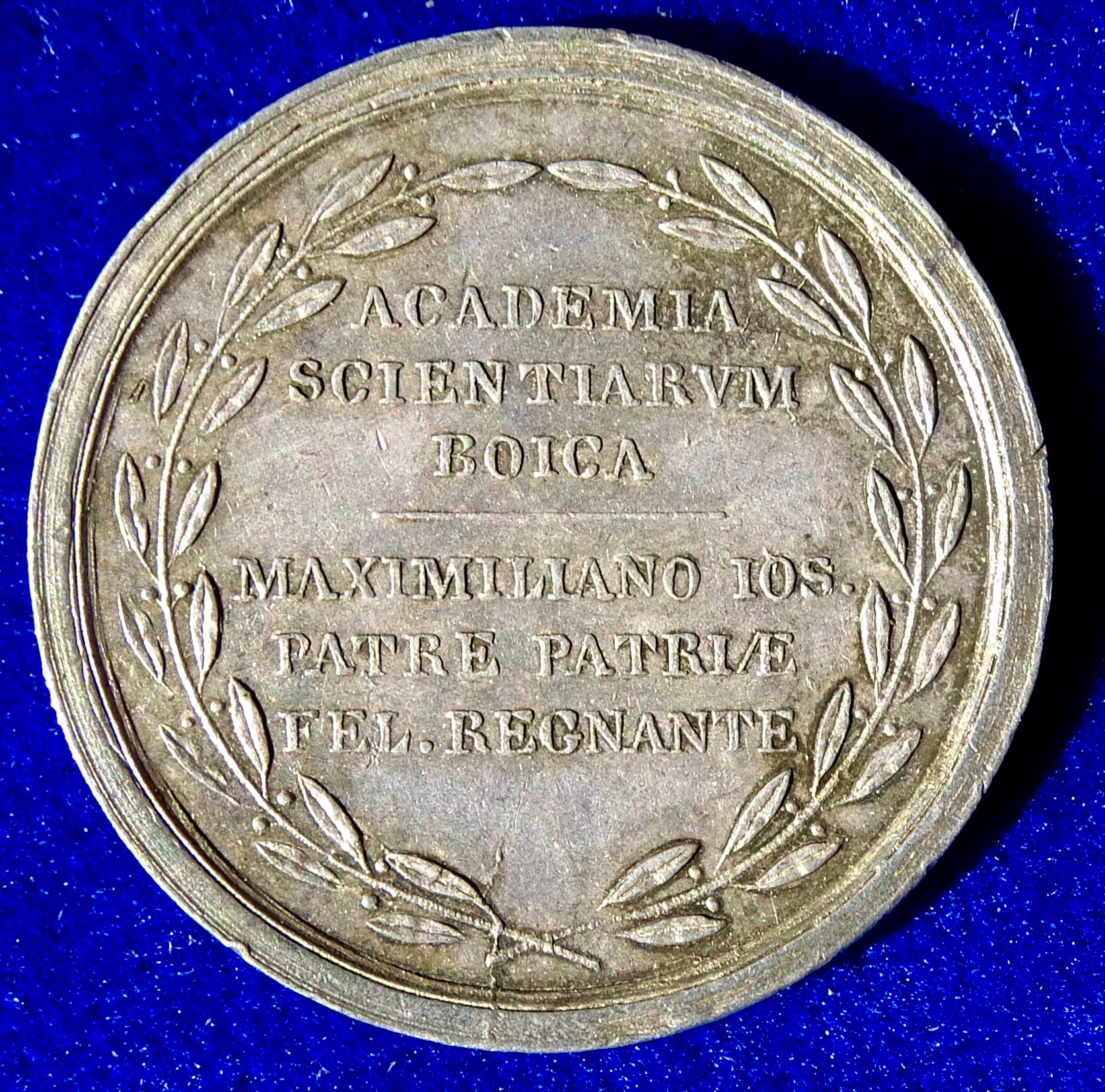Bavarian Academy of Sciences and Humanities on:
[Wikipedia]
[Google]
[Amazon]
The Bavarian Academy of Sciences and Humanities (german: Bayerische Akademie der Wissenschaften) is an independent public institution, located in Munich. It appoints scholars whose research has contributed considerably to the increase of knowledge within their subject. The general goal of the academy is the promotion of interdisciplinary encounters and contacts and the cooperation of representatives of different subjects.

 On 12 October 1758 the lawyer
On 12 October 1758 the lawyer
Homepage of the Bavarian Academy of Sciences and Humanities
Sitzungsberichte
der mathematisch-physikalischen Klasse (Proceedings of the Mathematical-Physical Class, in German) 1860–2004 at ZOBODAT * * * {{Authority control 1759 establishments in the Holy Roman Empire 18th-century establishments in Bavaria Academy of Sciences and Humanities Union of German Academies of Sciences and Humanities Scientific organizations established in 1759 Munich Residenz
History

 On 12 October 1758 the lawyer
On 12 October 1758 the lawyer Johann Georg von Lori
Johann Georg von Lori (17 July 1723 – 23 March 1787) was a Bavarian high official, lawyer and historian. He was the driving force behind the foundation of the Bavarian Academy of Sciences and Humanities in 1759.
Life
Early years
Johann Georg ...
(1723–1787), Privy Counsellor at the College of Coinage and Mining in Munich, founded the ''Bayerische Gelehrte Gesellschaft'' (Learned Society of Bavaria).
This led to the foundation by Maximilian III Joseph, Elector of Bavaria, of the Bavarian Academy of Sciences and Humanities on 28 March 1759.
Count Sigmund von Haimhausen was the first president.
The Academy's foundation charter specifically mentions the Parnassus Boicus, an earlier learned society.
Originally, the Academy consisted of two divisions, the Class for History (''Historische Klasse'') and the Class for Philosophy (''Philosophische Klasse''); natural sciences, including mathematics
Mathematics is an area of knowledge that includes the topics of numbers, formulas and related structures, shapes and the spaces in which they are contained, and quantities and their changes. These topics are represented in modern mathematics ...
and physics, were thought of as part of the Class for Philosophy. Today, the Academy is still divided into two classes, but the classes are now the Class for Philosophy and History (which also includes the humanities and social sciences) and the Class for Mathematics and the Natural Sciences.
Members
In each class, the number of ordinary members is limited to 45, and the number of corresponding members is limited to 80. However, ordinary members at or over the age of 70 are not counted towards this limit; the number of ordinary members is, therefore, usually around 120. During the course of its history, the academy has had numerous famous members including Johann Wolfgang von Goethe, the Grimm brothers, Theodor Mommsen,Anthimos Gazis
Anthimos Gazis or Gazes ( gr, Ἄνθιμος Γαζῆς, born ''Anastasios Gazalis'', ; 1758 24 June 1828) was a Greek scholar, revolutionary and politician. He was born in Milies (Thessaly) in Ottoman Greece in 1758 into a family of modest mea ...
, Alexander and Wilhelm von Humboldt, Kurt Sethe, Max Planck, Otto Hahn, Albert Einstein, Max Weber
Maximilian Karl Emil Weber (; ; 21 April 186414 June 1920) was a German sociologist, historian, jurist and political economist, who is regarded as among the most important theorists of the development of modern Western society. His ideas profo ...
, Werner Heisenberg and Adolf Butenandt.
The first women were admitted as full members of the academy in 1995, and including the geneticist Regine Kafmann and the Indo-European linguist Johanna Narten.
Presidents
First president was the chairman of the Mint and Mining Commission, Sigmund, Count of Haimhausen. Further presidents included Friedrich Heinrich Jacobi, Friedrich Wilhelm von Schelling,Justus von Liebig
Justus Freiherr von Liebig (12 May 1803 – 20 April 1873) was a German scientist who made major contributions to agricultural and biological chemistry, and is considered one of the principal founders of organic chemistry. As a professor at t ...
, Ignaz von Döllinger, Max von Pettenkofer and Walther Meißner
Fritz Walther Meissner (German: ''Meißner'') (16 December 1882 – 16 November 1974) was a German technical physicist.
Meissner was born in Berlin to Waldemar Meissner and Johanna Greger. He studied mechanical engineering and physics at ...
.
At present, the presidency is held by .
Commissions of the Academy
For the pursuit of long-term projects, the Academy forms Commissions. At present, 37 Commissions employ more than 450 persons.See also
*Ludwig Maximilian University of Munich
The Ludwig Maximilian University of Munich (simply University of Munich or LMU; german: Ludwig-Maximilians-Universität München) is a public research university in Munich, Germany. It is Germany's sixth-oldest university in continuous operatio ...
* Technical University of Munich
* List of universities in Germany
* Bavaria
* German Academy of Sciences Leopoldina
References
Citations Sources *External links
Homepage of the Bavarian Academy of Sciences and Humanities
Sitzungsberichte
der mathematisch-physikalischen Klasse (Proceedings of the Mathematical-Physical Class, in German) 1860–2004 at ZOBODAT * * * {{Authority control 1759 establishments in the Holy Roman Empire 18th-century establishments in Bavaria Academy of Sciences and Humanities Union of German Academies of Sciences and Humanities Scientific organizations established in 1759 Munich Residenz